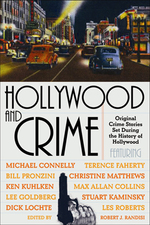The International Thriller Writers has enjoyed nothing but success, praise and enthusiasm since it was co-founded by Gayle Lynds & David Morrell two years ago…until now. On the eve of ITW’s first convention in Phoenix, Author Elaine Viets has criticized the organization’s inaugural list of Thriller Award nominess:
It’s tough to define an award-winning thriller, but the new International Thriller Writers has succeeded:
It’s anything written by a man.
That’s not what it says on the ITW Website. That tells us,
"Thrillers provide a rich literary feast – the legal thriller, the spy
thriller, the action-adventure thriller, the medical thriller, the
police thriller, the romantic thriller, the historical thriller, the
political thriller, the religious thriller, the high-tech thriller, the
supernatural thriller. The list goes on and on, with new variations
being invented constantly. This openness to creation and expansion is
one of the field’s characteristics."Unfortunately, the plums at this literary feast are served to men
only. For the first ITW Thriller Awards, every single novel nominee is
a man.Best Novel – five men.
Best First Novel – five men.
Best Paperback Original – five men.
And the winners of these Thriller Awards?
No surprise there: They’re all going to be men.
So is the recipient of the first ITW Life-Time Achievement Award.
The judges were men and women. So was it sexism…or did men simply write the best work this year? You tell me. I didn’t check, but how many Jews were nominated? Jews write lots of crackling thrillers. Hmm.
UPDATE 6-23-06: Novelist Joe Konrath calls Elaine Viets "a troll" and ITW co-founder Gayle Lynds reponds to her charges. Gayle wrote, in part:
As an author (not as a woman who has spent her life battling sexism), I
could complain that no women were nominated. At the same time, I could
also complain that no people of color were. I’m not sure whether any
Muslims or religions other than Christian or Jewish were nominated, but
I think they weren’t either. There also might be a preponderance of
nominees from one section of the United States, which could be taken as
a prejudice favoring that area.As long as awards are given in
whatever field, there are always going to be those who say, "I wish it
were otherwise. And because it isn’t, it’s prejudice."The only
time there’s really an institutional problem, at least in my mind, is
when there is a history of one group of people being disenfranchised.Since this is ITW’s first year, the organization can have no track record of institutional prejudice.



